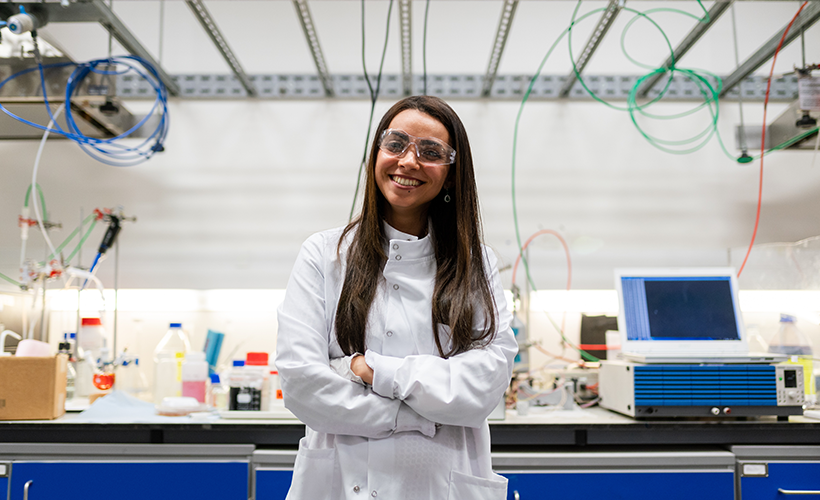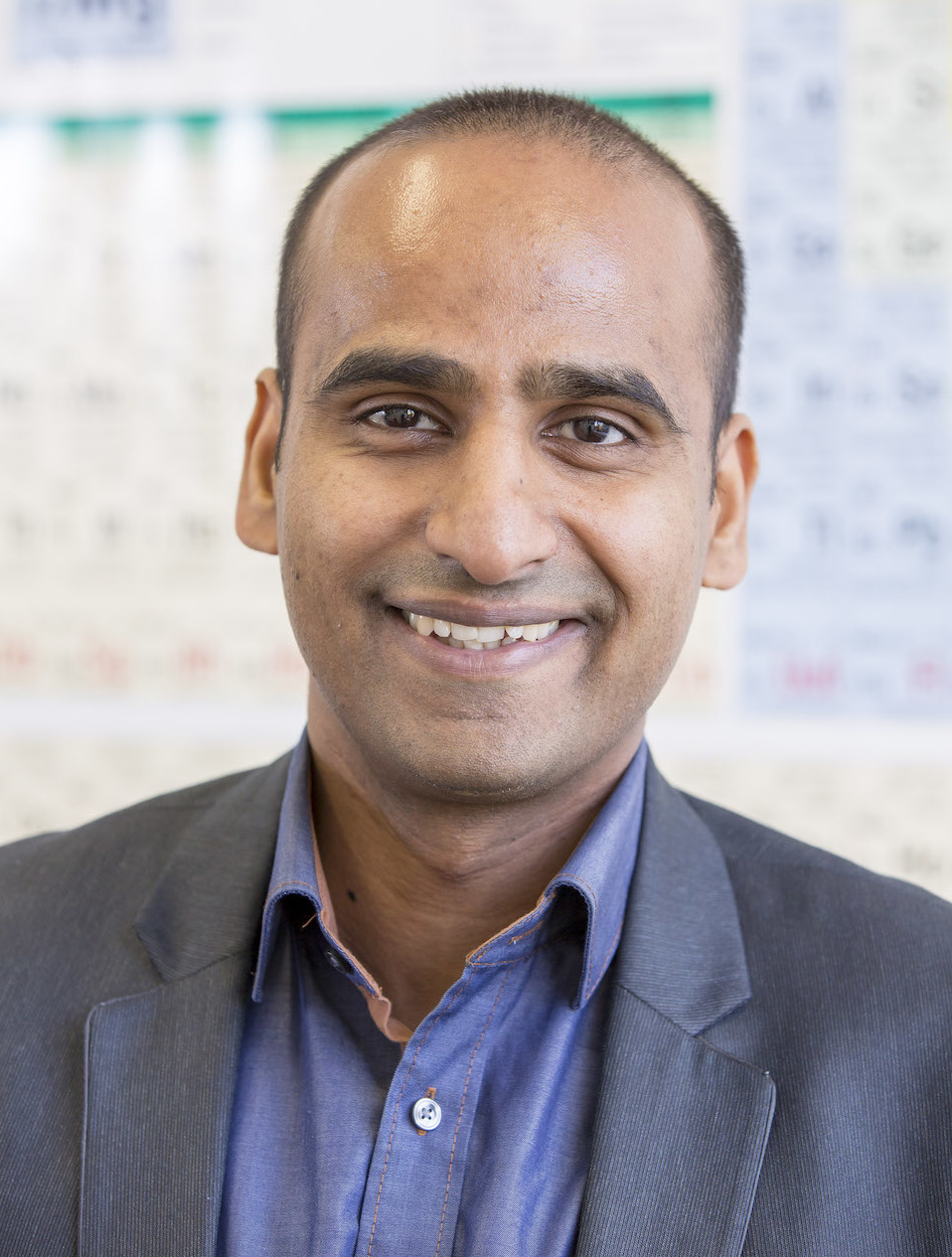Jun. Prof. Dr. Amitabh Banerji
Tell me something about you and your background.
I was born in India but moved to Germany with my family when I was 4 yrs old. I grew up in Berlin and studied Chemistry and Computer Science for Teachers (Lehramt) at the Freie University. After my Referendariat (Teachers Training) I did my PhD at the Bergische University of Wuppertal at the Workgroup of Prof. Tausch (Chemiedidaktik - Chemistry Education).
What is your field of research?
Science Education. In Germany, there is still a high need of excellent scientists and engineers. We try to motivate young people for science and technology by introducing innovative topics (like OLEDs) into science classes. Furthermore, I started to investigate, how digital media (tablets, smartphones) can assist the learner to understand scientific contents (like reactions, molecule-structures, etc.). The results of our research are directly implemented in our university program to educate the future teachers along an innovative curriculum.
Which are your main achievements so far?
My biggest achievement is a low-cost experiment to build OLEDs in classrooms with students. I developed the experiment during my PhD time and continued to evaluate and optimize it in my postdoctoral phase. Currently, we (my team and me) are educating 100 teachers in Germany to handle the experiments so that they can introduce OLEDs in their own classes. Luckily, we are supported by the chemical company Merck which is supporting the schools with all materials for free.
At the KSOP anniversary on December 7 you will hold a science slam. What is it all about?
The Slam is about OLEDs and how you can build an OLED with low-cost materials and methods.
How did you get the idea for your science slam?
I like the idea to explain something very complicated to a laymen audience, because simplifying complex content to an understandable level is a very important task for a teacher anyway. My challenge is to make it happen in 10 min – including a live experiment. That is a challenge I love to accept.
You will be demonstrating the construction of a self-made OLED-device in a live experiment. What is your main objective and how is it related to KSOP?
OLEDs are an outstanding example for current research in the field of optical electronics. Our developments allow students (at school and university level) to fabricate their own OLED in a simple hands-on experiment. The active work and practical experience leads to high motivation and a profound understanding of the subject content, which is why our development can contribute to improve the curriculum of O&P study programs. Furthermore, the OLED experiment helps to communicate O&P topics to the general public - e.g. within open door days, exhibitions, science slams, etc.
What do you think is the main challenge in the field of Optics & Photonics currently?
From a chemists’ perspective a main challenge is to find and synthesize new materials for optics & photonics and to improve the existing materials in their stability and efficiency. Therefore, it will be necessary to better understand the (photo-)processes in the devices and materials which can only be done together with physicists, material scientists, electrical engineers…).
How do you think will the field develop in the next years? Which will be future challenges, which challenges will be resolved?
I can’t answer that question properly because my work is only related to O&P. But I think that the importance of O&P will be increasingly noticed by politics and society.
And where do you want to go in the future personally?
I will try to settle myself as a full professor continuing my work on innovative science education and low-cost experiments (currently I am working on flexible OLEDs and low-cost Organic Solar Cells).
Thank you for the interview, Mr. Banerji.

Do you want to study Optics & Photonics?
Learn More Here
Do you want to research in the field of Optics & Photonics?
Learn More Here

